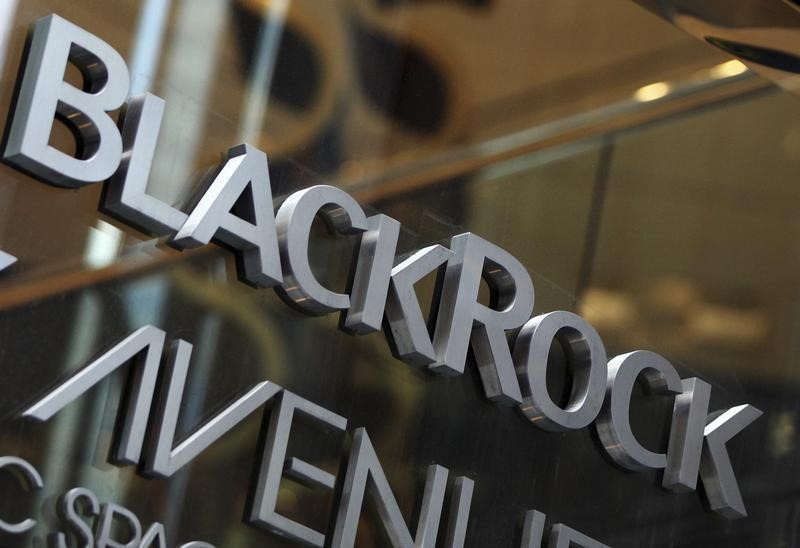By Simon Jessop
LONDON (Reuters) - A regulatory plan to scrutinise some exchange-traded funds to ensure investors and the broader market are protected has got the backing of BlackRock's (N:BLK) head of iShares for Europe, Middle East and Africa.
The types of funds in the regulatory crosshairs are all so-called "smart beta" funds, which can mimic more complex investment strategies for a much lower cost, and which have gained in popularity among investors.
They have attracted the attention of regulators in Europe and the United States, who are looking at the potential risks they pose to individuals and the financial system.
"The biggest concern regulators have is do people know what they're buying? And I think that's the right area of concern," Rachel Lord, BlackRock's iShares head for EMEA told Reuters in an interview. "The problem is there are too many things under the guise of smart beta, it's a very broad church."
BlackRock is the world's biggest provider of exchange-traded products, running $1.1 trillion (1 trillion pounds) across 700 funds globally. Exchange-traded funds trade like a stock but provide investors with low-cost access to an index, asset or basket of assets.
Lord's regional division had $234 billion in assets under management at the end of April.
She said some of BlackRock's funds were based around smart beta concepts, such as buying high dividend-paying stocks, but none were leveraged or "inverse."
The use of leverage can amplify the gains or losses from an investment, while so-called inverse products bet on falling prices.
Lord said she could be tempted to launch BlackRock versions of the more complex structures to institutional investors, but currently saw little demand from potential clients such as banks, pension schemes, insurers and sovereign wealth funds.
These investors can instead access the same market exposure provided by a leveraged or inverse ETF in a more bespoke form through a structured product offered by an investment bank, she said.
But she also said that could change if tighter capital rules make it tougher for banks to offer such products at attractive prices in the future.
Institutional investors make up around 60 percent of demand for ETFs in Europe, with the rest retail, Lord said, although it was hard to be precise as there is no requirement to report ETF trades. But both segments are growing strongly, she said.
BlackRock's market share globally of 37.4 percent make it the market leader in exchange-traded products, followed by U.S. rivals Vanguard, with 16.5 percent, and State Street, with 15.1 percent.
RETAIL FOCUS
Rather than create niche products for a limited institutional market, Lord said she was currently putting her resources into meeting growing retail demand for the more basic products following rule changes in Britain and the Netherlands that have made it easier to sell them to small investors.
These reforms stopped asset managers being able to pay commission to financial advisors for steering clients towards more expensive products, often at the expense of low-fee ETFs.
Nowadays, ETFs are more frequently suggested as an alternative to active mutual funds, Lord said.
Year-to-date cumulative inflows into exchange-traded funds listed in Europe were $38.6 billion, BlackRock said, with more than 50 percent going into fixed income ETFs.
There was no firm data on the volume of ETFs sold to retail customers.
(In penultimate paragraph, the story corrects to show flows into ETFs are across the whole industry)
